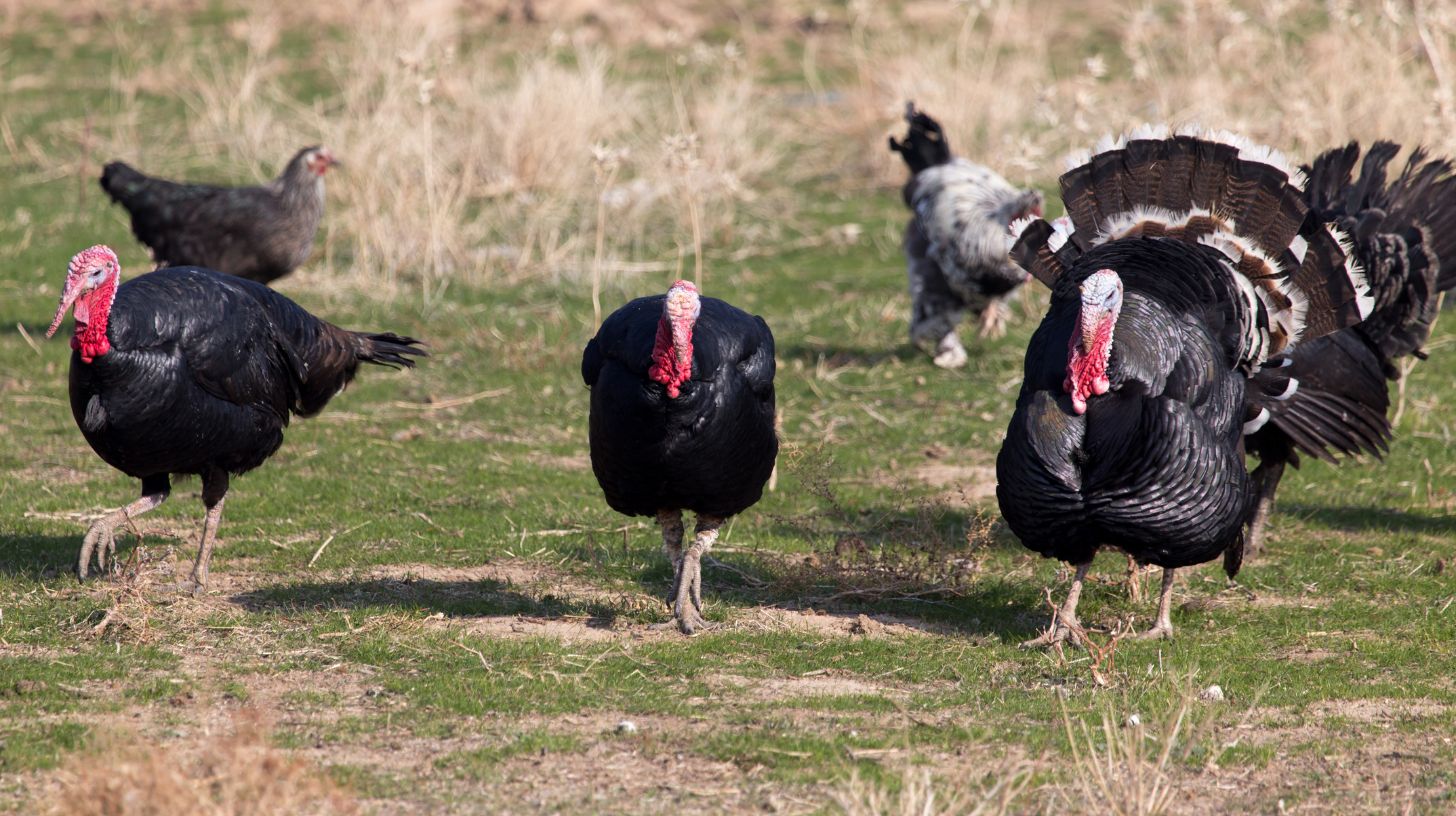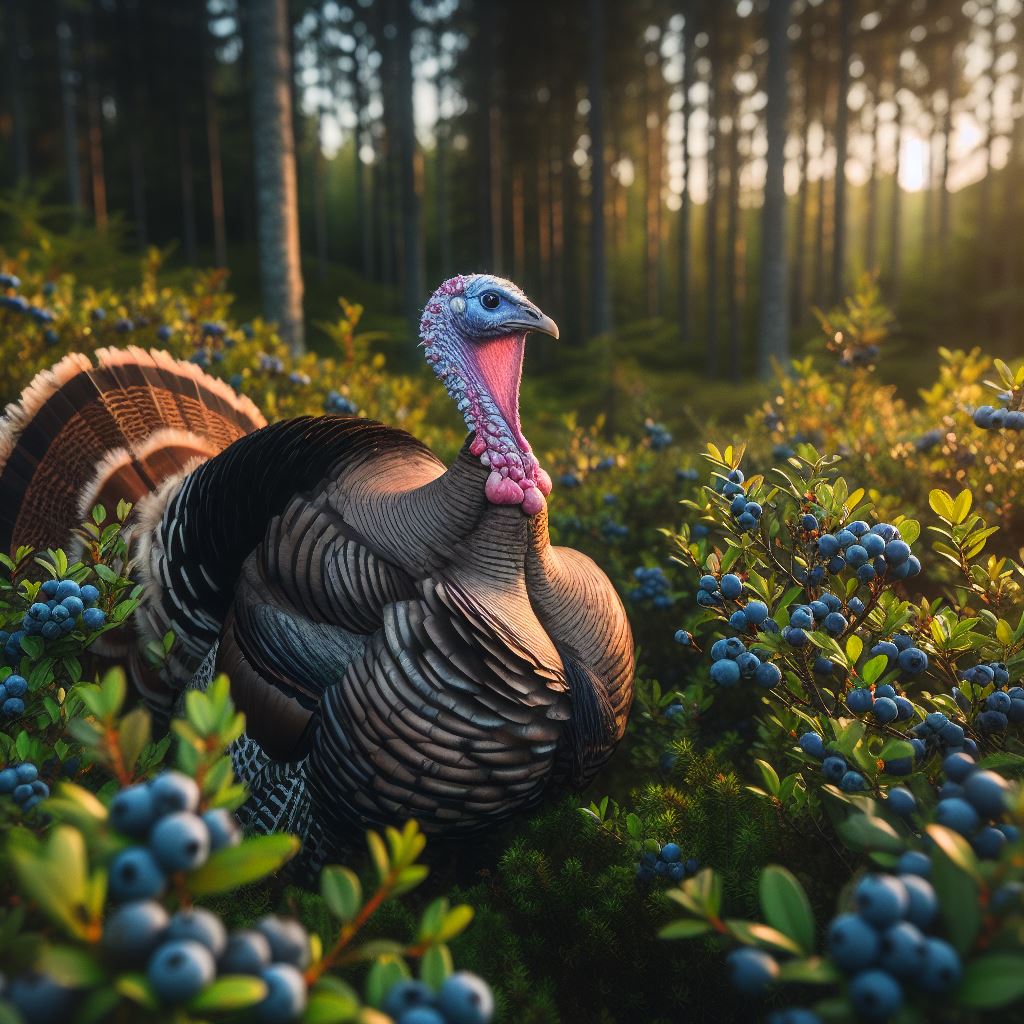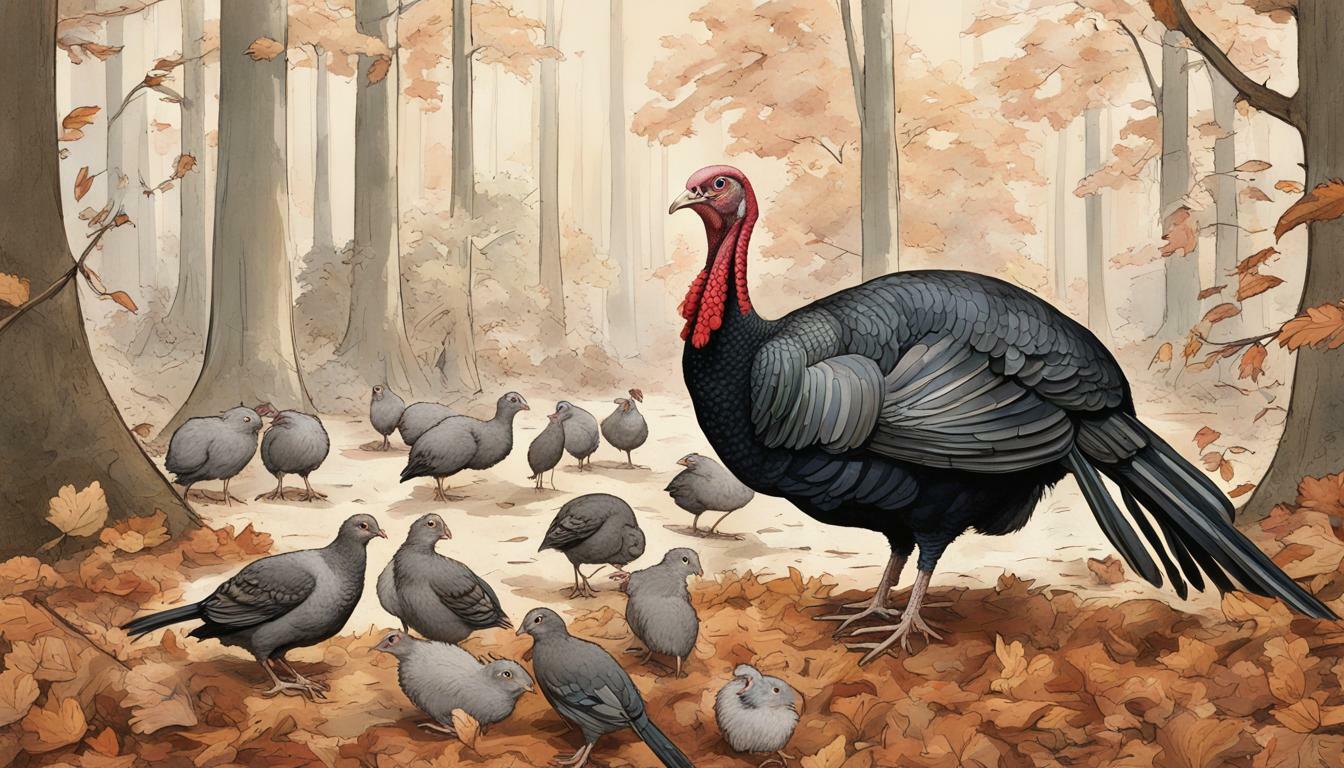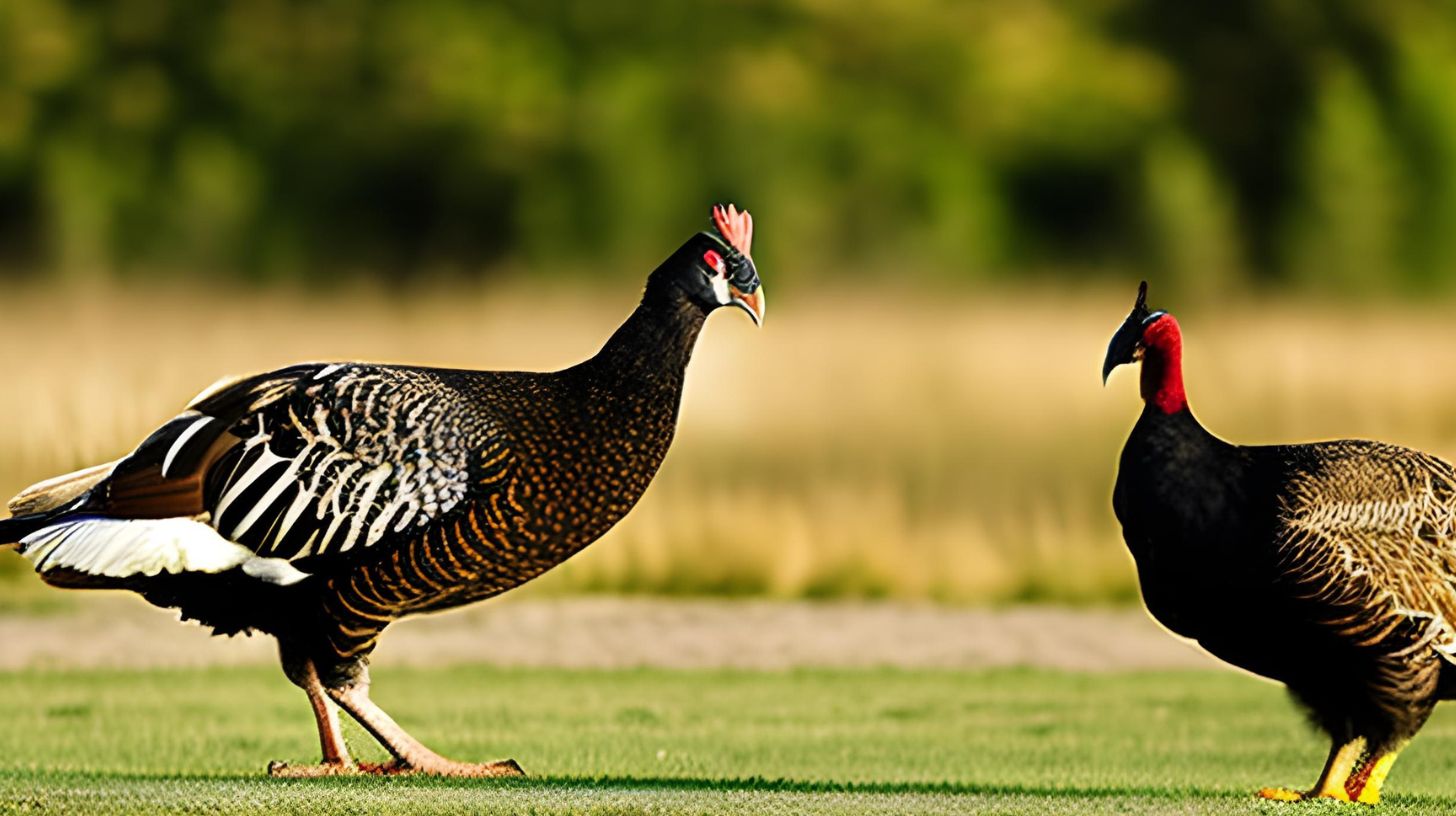Can Turkeys Eat Cucumbers? Cucumbers as Food

Daftar isi:
- Are Cucumbers Toxic to Turkeys?
- Cucumber Nutrition Facts
- Benefits of Feeding Cucumbers to Turkeys
- Are There Any Concerns with Feeding Cucumbers?
- How Much Cucumber Can Turkeys Eat?
- How to Prepare and Serve Cucumber to Turkeys
- Can Turkeys Eat Cucumbers Every Day?
- Can Baby Turkeys Eat Cucumber?
- Do Wild Turkeys Eat Cucumbers?
- Summary
Turkeys are a common type of poultry often raised on farms and homesteads. With their large size and appetite, turkeys make quick work of grains, greens, and insects. Turkeys kept as backyard pets or livestock need a varied diet to stay healthy. This leads many turkey owners to ask: can turkeys eat cucumbers?
Cucumbers are a popular produce item, especially during the summer months. These mildly flavored fruits are filled with water and provide some valuable vitamins and minerals. Cucumbers are also low in calories. Humans enjoy cucumbers in salads, as snacks, and as part of healthy diets. But is it safe for turkeys to eat them as well?
Are Cucumbers Toxic to Turkeys?
The first question that comes up is whether or not cucumbers could be toxic to turkeys. Fortunately, cucumbers are not poisonous or harmful to birds like turkeys. Both wild and domesticated turkeys can safely consume cucumber flesh.
However, the skin of the cucumber is tough for a turkey to digest. It’s best to peel the skin off before giving cucumber to turkeys. This allows the birds to access the moisture and nutrients inside without any digestive upset.
Some gardeners may fear that pesticide residue could harm turkeys. Always wash cucumbers thoroughly before feeding. If growing cucumbers yourself for the flock, use organic methods without chemicals. This removes any risks.
Overall, the cucumber itself contains no compounds toxic to turkeys. Washed, peeled cucumbers can be fed without worry. Monitor the bird’s droppings for signs of looseness if introducing for the first time.
Cucumber Nutrition Facts
Cucumbers are not a significant source of protein, fat, or calories. Their main nutritional benefit comes from their high water content. One peeled, raw cucumber with seeds removed contains about 96% water.
This means cucumbers provide excellent hydration for turkeys. The moisture in cucumbers can help aid digestion and keep the turkey flock properly hydrated on hot summer days.
Cucumbers also contain decent levels of vitamin K, vitamin C, and antioxidants like flavonoids and tannins. The vitamin C content can help boost the turkey’s immune system. The antioxidants may offer anti-inflammatory effects as well.
Beyond hydration and some vitamins, cucumbers do not provide major nutrition for turkeys. They have trace amounts of minerals like potassium, copper, and manganese but not significant quantities. Their calorie count is low, with only 16 calories in a whole, peeled cucumber.
Benefits of Feeding Cucumbers to Turkeys
Here are some of the main benefits turkeys can gain from eating cucumber treats:
- Hydration – The high water content in cucumbers helps turkeys stay hydrated. This is especially helpful in summer heat.
- Supports digestion – The fluid and fiber in cucumbers can aid the passage of food through the digestive tract.
- Provides trace nutrients – While not loaded with vitamins and minerals, cucumbers provide small amounts that contribute to the turkey’s nutrition.
- Low calorie snack – Cucumbers are low in calories, allowing for a light treat.
- Adds variety – New foods like cucumbers add diversity to the diet and interest for bored turkeys.
Cucumbers can be an occasional snack for turkeys but should not make up the bulk of their diet. Think of cucumbers like a cool drink of water with light nutrition. Turkeys will benefit most when cucumbers are fed in moderation alongside their regular feed.
Are There Any Concerns with Feeding Cucumbers?
Cucumbers do not pose major health risks to turkeys. However, some potential downsides of feeding cucumbers include:
- May cause loose droppings if turkeys eat too many. Cucumbers have a laxative effect in large amounts. Start with small portions.
- Not a significant source of major nutrients. Should not replace formulated poultry feed.
- Can cause choking hazard if pieces are too large. Slice lengthwise and cut into bite-sized portions.
- Overfeeding can lead to diarrhea, dehydration and nutritional deficiencies over time. Feed cucumbers in moderation.
Monitor the turkey’s reaction after initial feeds. Adjust portion sizes as needed. Any diarrhea or loose droppings signals too much cucumber at once.
How Much Cucumber Can Turkeys Eat?
There is no set amount of cucumber that is ideal for turkeys. Their cucumber intake should be limited and only supplemental to their regular feed.
As a rule of thumb, no more than 10% of a turkey’s daily food intake should come from treats like cucumber. Free-choice poultry feed must remain the bulk of their diet.
For a 10-15 lb turkey, two to three cucumber slices once or twice a week makes a healthy treat. Larger adult turkeys may tolerate 1-2 more slices. Spread out feedings to avoid diarrhea.
Some experts recommend limiting high-water produce like cucumbers to two or three times a week at most. This prevents imbalance of nutrients and electrolytes.
Observe the turkey’s manure and adjust quantities. Healthy turkeys can safely eat small amounts of peeled, seeded cucumber in moderation. Adjust serving sizes as needed.
How to Prepare and Serve Cucumber to Turkeys
Follow these tips for preparing and serving cucumber treats:
- Wash thoroughly and peel skin which can be tough to digest
- Cut lengthwise and scoop out seeds which could cause choking
- Cut cucumber into long slices or small, bite-sized cubes
- Place slices in a flat dish or scatter cubes on the ground
- Refrigerate cut cucumbers if not serving immediately
- Start with a few slices, monitor droppings, then slowly increase portion
- Offer once or twice a week alongside formulated feed and grit
Always supervise feeding and remove any uneaten cucumber remains within an hour. Properly stored cut cucumbers can be refrigerated for 2-3 days.
Can Turkeys Eat Cucumbers Every Day?
It is not recommended to feed cucumbers to turkeys daily. Cucumber should be an occasional treat a few times a week at most.
Daily cucumber feeding can lead to:
- Nutritional deficiencies over time since cucumbers are low in key nutrients
- Excess water consumption resulting in loose droppings
- Decreased appetite for more nutritious feed
- Poor growth and development in younger turkeys
- Increased risk of choking on slices or seeds
For optimal turkey health and growth, a properly formulated feed should make up the bulk of their diet. Free access to fresh water is also essential daily.
Occasional fruit and vegetable treats like cucumber add enjoyable variety. But these snacks lack key amino acids, vitamins, and minerals turkeys need in their regular diet. Moderation is key when feeding produce like cucumbers.
Can Baby Turkeys Eat Cucumber?
Cucumbers are safe for baby turkeys or poults a few weeks old. But their diet should be predominantly turkey starter feed.
Wait until 4-6 weeks old before offering limited portions of cucumber as a snack. Then introduce peeled, seeded cucumber slices a couple times a week.
Monitor droppings to watch for looseness. Adjust portions as needed. Overfeeding cucumbers can lead to nutritional issues for growing poults. Stick to treats of 1-2 slices, 2-3 times weekly at most for young turkeys.
Poults require high protein feed for proper growth. Cucumbers will not provide sufficient nutrition as a daily feed. Feed nutritious turkey starter as their main diet for the first 16-20 weeks of life.
Do Wild Turkeys Eat Cucumbers?
Wild turkeys found in nature diets don’t normally eat garden produce like cucumbers. But they will sample and ingest a diverse mix of:
- Greens – Grass, dandelions, clover, alfalfa
- Seeds – Acorns, nuts, grasses
- Fruit – Berries, grapes, cherries
- Insects – Grasshoppers, grubs and larvae
Given the chance, wild turkeys may try cucumbers if available. They tend to have varied diets and can digest a wide range of plant foods.
A key benefit of cucumbers for wild birds is their high water content. Wild turkeys need ample water sources to survive in nature. A hydrating cucumber could appeal to a foraging turkey.
Despite an varied natural diet, a lack of calories, protein and nutrients in produce like cucumbers means it can’t sustain wild birds alone. They thrive best on balanced diets from diverse, natural food sources.
Summary
In summary, cucumbers are a safe food that provides some benefits when fed to turkeys in moderation. Their high water and low calorie content makes them an ideal occasional treat. But overfeeding can cause digestive issues. Cucumbers should never comprise a bulk portion of the diet.
Monitor your turkey flock’s droppings and health when introducing new treat foods. For healthy turkeys enjoying a balanced diet, small portions of peeled, seeded cucumber two or three times a week can add variety and hydration. Both adult turkeys and older poults can enjoy cucumbers. Just be sure not to overfeed, and remove uneaten remains promptly. With proper portioning, cucumbers can be a refreshing snack for your turkey flock.
Welcome. I’m Adreena Shanum, the proud owner of this website, and I am incredibly passionate about animals, especially poultry. I founded adreenapets.com as a labor of love, stemming from my desire to share my knowledge and experiences with poultry enthusiasts worldwide.




